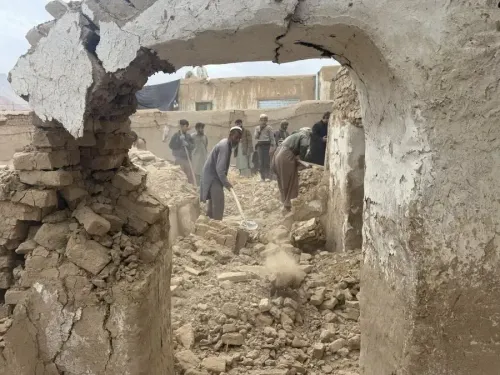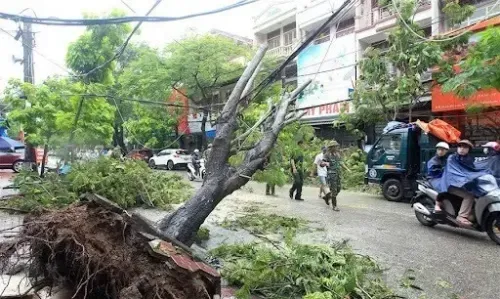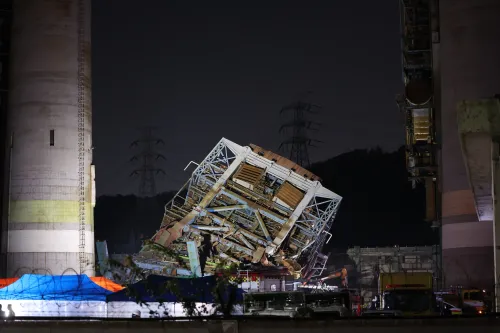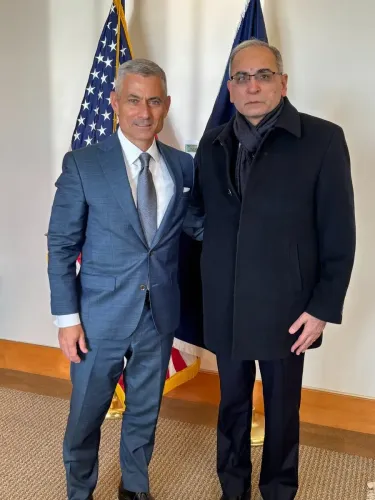Critical Insights from the Collapse of China's 'Zero-Covid' Strategy for Global Governance and Public Health Reforms
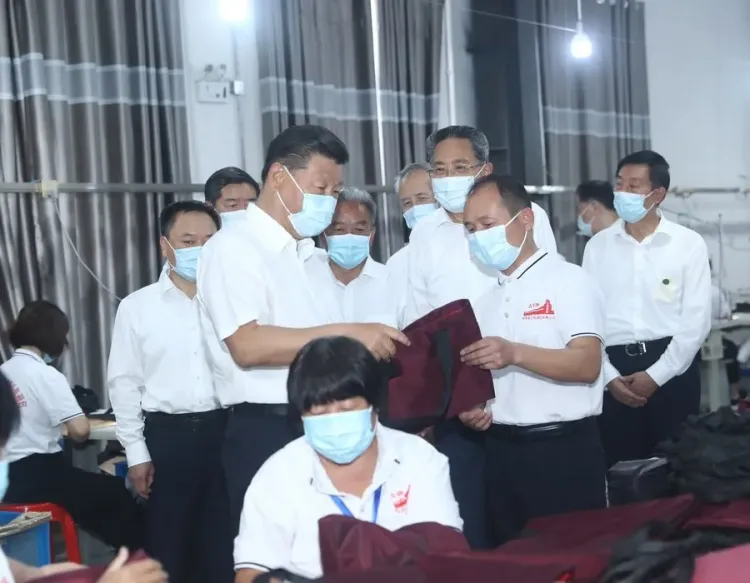
New Delhi, Dec 10 (NationPress) The international community faced severe lockdowns almost five years ago to tackle the deadly coronavirus SARS-CoV-2, more commonly known as Covid-19, which was first discovered in Wuhan, China, in late 2019. This pandemic resulted in around 6.6 million deaths worldwide and compelled China to adopt a rigorous 'Zero-Covid' policy to contain the virus's spread.
During the initial wave, this strategy resulted in over 60,000 fatalities within China. Although the policy seemed to be effective at first, its prolonged implementation has led to adverse impacts on the nation’s socio-economic framework and public health, effects that China has yet to completely address.
The enforcement of this 'Zero-Covid' strategy by the Chinese Communist Party (CPC) ultimately sparked the White Paper protests in late 2022, reflecting widespread discontent with the oppressive conditions endured by citizens.
Consequently, it is essential to thoroughly investigate the consequences and inadequacies of China's 'Zero-Covid' policy.
In August 2020, China launched its 'Zero-Covid' strategy to control local Covid-19 cases while striving to minimize interruptions to the nation’s socio-economic stability. This approach involved early detection through regular PCR testing and strict regulations mandating individuals to maintain a 'normal' Covid profile, which included presenting negative test results for access to public venues.
Individuals identified as potential cases faced extended quarantines in government-supervised facilities. Furthermore, movement and communication were heavily restricted, with the government closely monitoring citizens' mobile devices.
The aggressive nature of this policy was highlighted by comprehensive lockdowns of buildings, communities, and even entire cities upon the identification of a single potential case.
While many nations began to relax lockdown measures, China continued its strict adherence to the 'Zero-Covid' strategy. Initially, this rapid response was praised for protecting vulnerable groups and preventing the introduction of new Covid variants from abroad, providing citizens time to prepare for the pandemic. The 'Zero-Covid' policy was largely depicted as a testament to Xi Jinping's effective leadership in contrast to Western reactions, promoting public compliance and contributing to its early success.
However, the ensuing socio-economic crisis demonstrated that the policy posed more challenges than advantages.
Prolonged lockdowns and frequent mass testing severely disrupted daily life and increased the financial burden on the government. Reports emerged regarding shortages of essential supplies, including food and medical resources, as individuals endured enforced quarantines, exemplified by the infamous midnight quarantine in Xi'an.
Moreover, the overextension of this policy led to significant economic issues such as sluggish GDP growth, a housing crisis, business closures, and a troubling rise in youth unemployment. The socio-economic distress arising from movement restrictions and insufficient supplies due to Beijing's stringent measures also resulted in considerable psychological strain among the populace.
Chinese citizens, increasingly frustrated with the two-year-long 'Zero-Covid' policy, have begun to publicly express their discontent, highlighted by the Sitong Bridge protest in October 2022.
A tragic fire in an apartment building in Urumqi the following month ignited widespread protests against the Chinese government and Xi Jinping's highly publicized 'Zero-Covid' strategy. The building that burned had its fire escape doors locked due to over 100 days of government-imposed quarantine, despite the regional capital not experiencing significant virus outbreaks.
Social media showcased the government's inaction during this incident, with fire trucks unable to approach the flames. Consequently, Urumqi residents took to the streets in protest, which quickly escalated into a nationwide movement led by youth known as the White Paper protests.
Protesters brandished blank sheets of A4 paper, symbolizing government censorship regarding freedom of expression and assembly. Their grievances extended beyond the 'Zero-Covid' policy to include broader concerns about increasing authoritarianism and surveillance by the government. Slogans targeted the Communist Party of China (CPC) and Xi Jinping, demanding their resignation.
Thus, the Urumqi fire incident acted as a trigger for the White Paper protests, reflecting public dissent against the 'Zero-Covid' policy and calls for more extensive political reforms in China.
The government's reaction to the silent protests involved a heavy-handed police crackdown and widespread detentions. Additionally, authorities addressed dissent regarding Xi Jinping's 'Zero-Covid' policy through the censorship of protest coverage in state media.
Throughout the duration of the 'Zero-Covid' policy, state-controlled media in China has continuously practiced censorship.
Notably, Dr Li Wenliang, an ophthalmologist from Wuhan who became known as the 'whistleblower' of the virus, faced accusations of 'making false comments' when he attempted to alert others about the deadly virus in December 2019.
Following his death, a significant public outcry emerged on social media platforms, often referred to as the Wailing Wall, which was routinely censored by the government. Prominent journalists and medical professionals who expressed their views against the government's 'Zero-Covid' policy were similarly silenced.
The government further restricted investigations and halted the publication of data related to Covid outbreaks and fatalities, disseminating inaccurate scholarly findings that were later retracted upon exposure. As global criticism escalated concerning China's pandemic management, new narratives emerged. Censorship expanded beyond data publication to encompass any negative reporting on the 'Zero-Covid' policy or expressions of dissent, including those witnessed during the Wailing Wall, Sitong Bridge protest, and White Paper protests.
The White Paper protests ultimately prompted China's sudden discontinuation of its two-year-long 'Zero-Covid' policy in December 2022, leaving citizens to navigate the aftermath independently, which exacerbated public suffering.
What Xi Jinping had termed a 'people’s war against Covid' culminated in a lack of strategic planning, resulting in a substantial surge in cases. It is widely believed that the strict and overextended 'Zero-Covid' measures, combined with China's refusal to import effective vaccines and a lackadaisical approach to domestic vaccination efforts, contributed to the low infection rates during lockdowns but also resulted in insufficient natural immunity among the population compared to other nations.
The failure of the 'Zero-Covid' policy, along with the ensuing social unrest, serves as a vital lesson for future governance and public health reforms globally, underscoring the need to avoid replicating China's strategy.

